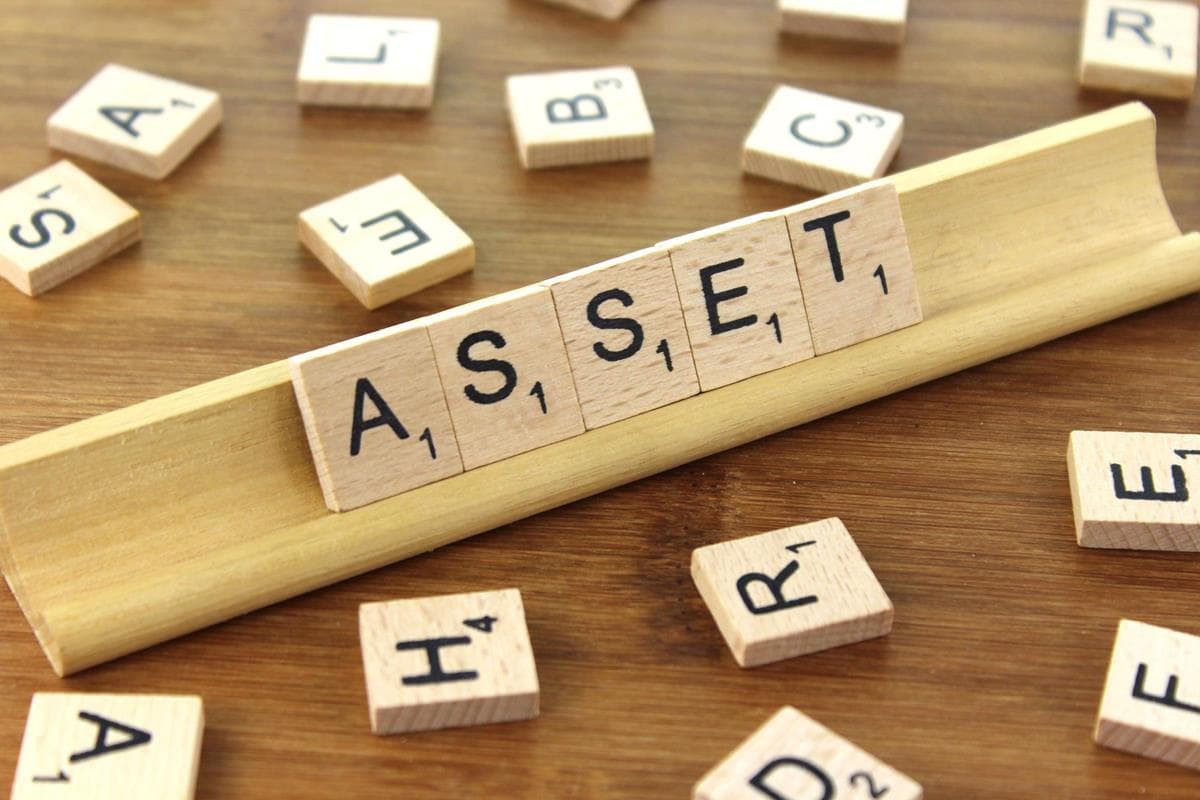-
25Sep2018
$20, 000 Instant Asset Write-Off Extended
The popular $20, 000 Instant Asset Write-Off has officially been extended until June 30, 2019.

If you’re an Australian small business turning over less than $10 million, you’ve been given another 12 months to take advantage of the scheme.
The Government states that the extra 12 months of the scheme will “improve cash flow for small businesses, providing a boost to small business activity and investment for another year.”
The program has seen a few different iterations and has been fighting Federal approval every year since its introduction in 2015.
Many small businesses — including many of you — love the scheme. Last year, the average write-off increased from $4, 000 to $9, 000.
As a reminder, the scheme allows small businesses to claim immediate deductions for asset purchases up to $20, 000. For more information on the scheme, visit our blog.


-
10Sep2018
Is Your Contractor Really A Contractor?
Just saying someone is working for you as a contractor, even if both parties agree, is not enough to prove this legal relationship.
Learn the difference between a contractor and an employee with this guide to the seven contractor warning signs.
There are complex rules surrounding whether a worker is an employee or independent contractor. Getting your assessment wrong can be extremely costly.
An independent contractor is a worker who is responsible for delivering a certain result, and he or she decides how to achieve that result. The level of control (exercised by the contractor) is what distinguishes a contractor from an employee.
Employees, however, are workers who operate under your instructions. You tell them what to do, how to do it and when to do it.
Experts in this area of employment law, often talk about the following seven warning signs that your contractor may be considered an employee.

These seven warning signs are:
1. You define the work hours
Generally, independent contractors do the job as they see fit. They set their own hours and work how and when they want. And they get paid by the project – never on an hourly basis.
2. You provide equipment or supplies
Independent contractors are expected to supply their own tools, equipment and supplies. As independent professionals, they should be expected to supply any and all tools necessary to complete the project they have been contracted to complete.
3. An indefinite relationship
The more permanent, open ended or long-term the relationship, the more likely the worker will be considered an employee. Remember, contractors are engaged on a temporary basis, usually to complete to a specific project.
4. No invoices
The contractor should be treated as a vendor under accounts payable. The contractor should provide you with invoices which include a valid ABN and, if applicable, a registered business name. Payment cheques should be written to that business name or a deposited in the business bank account.
5. Contractor only works for you
Independent contractors typically work with multiple clients. Contractor status is more apparent if the worker is servicing other customers at the same time he or she is handling your project.
6. No contract in place
You should always have a signed agreement in place with each contractor. It should be legally drafted and called “Independent Contractor Agreement” so there’s no question about the intent of the relationship. The agreement should, at the very least specify how much you are going to pay for the project and under what terms.
7. Performing core business services
Ideally, contractors should provide supplemental services but not the core services of your business. If your business is plumbing and your contractors are laying plumbing pipes, it could be considered an employee relationship. If, however, your contractors are supplying machines and digging ditches in which to lay the plumbing pipes, then it is more likely be considered a true contract arrangement.
If you are unsure of the status of your contractors, discuss with your accountant. If necessary, get some advice from an appropriately qualified employment lawyer.
For more help with determining whether you have contractors or employees, call us on 07 3510 1500, email or reach us on Messenger below.


-
07Sep2018
The Real Cost Of Owning Your Rental Property
Get the real cost lowdown on your rental property with this guide from Affinitas’ resident finance expert Tanya.
The long term goal of every investment asset should be to return a profit over an appropriate time frame. In the case of property, because of the high transaction costs to enter and exit the investment, the time frame should be at least 10 to 15 years.
Over time, a successful real estate investment should show growth in its income stream (rents), plus the actual capital value (sale price) should increase at a rate above annual average inflation.
Many people decide to buy investment property while still working, with the long term goal of using either the capital sale profit, or the rents, to at least part fund their retirement. The long term strategy to pay off any associated debt is also important to consider.
How much a property should appreciate over 10-plus years can be the subject of debate.
It is often suggested that a reasonable goal would be somewhere between four and seven percent above inflation. If average inflation is 3 per cent, then you would be hoping for long term capital growth of between 7% and 10%. These increases are however seldom linear and consistent. There can be quite a few peaks and troughs you need to contend with along the way.
Rents and property values generally grow, sometimes quickly and significantly, but they will also plateau at times, and can even decrease, depending on supply and demand and other broader economic factors.
In the times when the property market is not performing and your belief in the investment might be wavering, it can help to know the REAL cost of holding that property.
A real cost calculation highlights not only the obvious incomes and outgoings, but also factors in the tax benefits you receive when your property is making a loss that is recorded on your tax return.
This is commonly referred to as negative gearing.

Know the real cost of owning your rental property.
This week, Deb spoke with clients who were feeling a bit frustrated about how much their rental property was costing them . They weren’t sure that keeping it was the right thing to do. The interest expense they paid monthly — and the quarterly bills that seemed to roll around so fast — were front of mind for them and felt like a drain.
Deb used information gathered to prepare their tax return and unpack it to show them the real cost of owning their rental property:
After tax benefits they were receiving $42 per week — a lot more affordable than it seemed when they didn’t have the full picture.
They also met with me to review their loans and were able to negotiate a lower interest rate and use the interest savings to start paying down the principal on the loans. This helped them build equity in the property faster.
Adding in the tax benefits and maximising their finance structure left them a lot more comfortable about the long term prospects of their investment.
Most rental property owners, especially in the early years, see the money they pay out on a monthly basis but only receive the tax benefit in a lump sum when they complete their tax returns.
For those on tight budgets, there is a way to receive that tax benefit throughout the year in the form of less tax from your weekly or fortnightly income. This is achieved via lodging an annual PAYG variation with the ATO.
After analysing the cost of holding your rental property investment, you may still decide that it is not for you – but at least you will be making the decision based on all the available facts.
For help analysing the real cost of your investment property, to have your finance reviewed, or to discuss whether you could benefit from a PAYG variation, call us on 07 3510 1500, email us at or reach us on Messenger below.

-
31Aug2018
Why Isn’t My Tax Return Equal To The Deductions I Claimed?
Why Don’t I Get Back Dollar for Dollar?
Every year, we field heaps of questions from new and returning clients about their tax returns. One of the most common each tax season is— why don’t the tax deductions I claim equal the refund I get?
Turns out, the answer is simple: tax deductions bring down your overall taxable income.
Based on your income, you’ll fall into various tax brackets that determine your individual tax rate. You pay tax on this income based on this tax rate and it’s that same principle for deductions. This means you can claim a deduction and, in return, get back your tax rate percentage of that deduction. For example, if your tax rate is 25% and you claim $100 you get back $25. Claiming $3,000 in car expenses is not going to get you $3,000 equivalent refund — it’s going to get you $300 if your tax rate is 10%.
If you’ve found yourself spending money so you can ‘claim it back in tax’ be careful. You’ll never get back 100% of the cost of that claim.
It is also important to note that regardless of the deductions that you make, you cannot receive back more than you actually pay in tax each year. You can’t set the Tax Office up to pay you back for money you haven’t actually paid.
In summary, when you make a tax claim it does not mean that you will get that full amount back. When claiming expenses in your tax return it lowers your taxable income which means, in the end, you pay less tax overall.
Affinitas Accounting has been making your deductions work for you for more than 25 years. For help with your tax return preparation, or for related financial advice, call 07 3510 1500, email or reach us on Messenger below.


-
24Aug2018
Top 10 Tax Deductions For Medical Professionals
Medical graduates are educated and trained to deal with many complex situations, but that doesn’t include preparing your tax returns as a working professional.
Under the Australian tax system, the more you earn, the more you are taxed. For this reason, it is important to be aware of the legal deductions that can increase your annual refund or reduce the tax you need to pay.
As you are gathering your paperwork together for your annual return, it is worth keeping the following list of potential deductions in mind:
-
Subscriptions
Medical doctors are often members of multiple work–related associations and colleges or subscribe to professional journals and other publications. Fees for these memberships, colleges, medical registrations, and organisations like the AMA are all tax deductible.
-
Insurance
All doctors need professional indemnity insurance, which is tax deductible. Other insurances that could be deductible would be income protection, tax audit cover, and any general insurance that specifically covers medical equipment.
-
Motor Vehicle/Travel Costs
Travel to and from your place of work IS NOT tax deductible. But outside this, a lot of medical professionals need to travel for patient visits, external medical clinics, district medical meetings, or training sessions and conferences. These trips are all potentially claimable. Keep note of the kilometres you travel, or your airfares, plus any associated costs such as accommodation and meals if you are away overnight.
-
Continuing Medical Education
This can be one of the most significant areas of expense for a training doctor. CME is an essential and ongoing part of being a medical professional and the fees, clinical equipment/materials, printing and stationery costs, plus travel to exams and practice exams are all potentially claimable expenses.
-
Work From Home
Keep a tally of the hours you spend working and studying from your home. You should be at least able to claim a set rate-per-hour allowance for the use of your home for work-related purposes.
-
General Items Needed For Work
Desks, software, computers, calculators, safety equipment, medical bags, medical supplies/equipment and phone/internet costs can all be required directly for your work or your related study. These could be fully or partially deductible. Did you purchase anything with the $20, 000 Instant Asset Write-Off?
-
Clothing
General business/work attire IS NOT a claimable expense. But specialist clothing, theatre shoes, registered/logo uniforms and anything protective in nature is potentially claimable – as is the laundry/dry cleaning of these items.
-
Donations and Gifts
Any donations to a registered charity over $2 are tax deductible. Make sure you keep the receipts for any of these deductions. Also, it is important to realise that buying charity raffle tickets or purchasing items such as pins, scarves or stuffed toys IS NOT tax deductible – only cash donations.
-
Personal Investments
If you purchased an investment property, or any other investments, and used borrowed money to do so, then the interest on that loan and many other related costs may be tax deductible. This might also include a situation where a property was originally your home, but now is rented because you have had to relocate for work.
-
Accounting Expenses
Professional fees associated with preparing your tax return or providing you with tax related advice are tax deductible and should be included in your return.
Affinitas Accounting has been preparing tax returns for medical professionals for more than 25 years. For help with your tax return preparation, or for related financial advice, call 07 3510 1500, email or reach us on Messenger below.


-
-
17Aug2018
Why Does Deb Ask So Many Questions?
It is great to welcome new tax clients to our practice each year.
Many of these new people have been recommended by existing clients or have Googled us and been impressed by the number of positive reviews and ratings. During appointments with these new clients, many comment that we do ask a lot of questions (compared with their previous tax accountant).
Given these comments, we thought it was worthwhile tracking through some of the main reasons we run through a comprehensive list of questions with clients each year as part of their annual tax return interview with us.
We Want To Get To Know You
Unashamedly, it is our goal to turn every new client into a long term raving fan of our firm.
We believe this is achieved by being excellent tax accountants AND by getting to know about you, your family, your job, plus your hobbies and interests.
This not only makes your annual interview a more personal experience, but it also helps us hone in on areas where we can provide you with the best possible advice.
Accounting for All Income
Even as an individual employee, there are 17 different types of income that may need to be included in your annual tax return.
Some, like your annual PAYG summary, are obvious, but others like your bank interest, dividends, taxable Centrelink payments or capital gains from selling shares (or cryptocurrency) are easily for gotten.
It’s also important that we account for a full 12 months of your income – often people forget a brief part-time job they had for just a few weeks that needs to be included. If you’re operating a rideshare, there are rules around that too.
Not Missing Any Deductions
There are well over 20 potential line items for deductions on a personal tax return. Many more if you have a rental property. It is important to work through this list and make sure we have not missed anything that could get you some extra dollars back in your return.
But identifying potential deductions is just part of our job. We also need to ensure that you have kept the right records that allow you to make the claim. It is our duty of care to ensure you get the best possible tax result, but that the return would pass an audit from the ATO.
On many occasions we identify that clients might have a potential claim but not the records to prove that claim. So, we make sure you leave armed with what you need to do to make that claim in your next tax return.
Other Rebates & Offsets
Things like where you work, your age, your family situation, your level of income and whether you have private hospital insurance or a HECS debt can affect the outcome of your tax return by imposing extra levies, or reducing tax through offsets.
We need to be on the lookout for indications that these situations apply, explain how they could affect you – and whether anything could done in future years to better manage any of these outcomes.
The Tax Rules Change
Even for clients with whom we have a long history, rules relating to allowable deductions and related record keeping can change from year to year.
Also people’s incomes, investments, work arrangements and family situations can be different from when we last met.
It is important that we don’t just cut and paste last year’s deductions onto this year’s return. The ATO and the government do tweak and change the rules constantly and it is our job each to make sure your tax return is prepared under current rules and guidelines.
Conclusion
So, whether we pose them face to face or via the internet, there are good reasons why Deb (and all our tax consultants) will ask you lots of questions each year about your tax return.
To book in for this year’s list of tax questions, contact us on 07 3510 1500, email us at , or reach us through Messenger below.


-
10Aug2018
Tradie Tax Confusion
Five Strategies To Help Avoid The Year Two Business Cashflow Blues
Moving from earning wages to owning a business can be a confusing time for tradespeople, especially when it comes to tax.

Building your business but not your bank account?
You may know a lot about plumbing, electrical wiring or carpentry, but understanding how the business tax system works can be one of the biggest challenges of going out on your own.
Most tradies start working for themselves under an individual ABN, which is the simplest way to get set up and ready to invoice.
Under this system, you have income tax obligations from day one, but in the first year you are not required to calculate or pay income tax until you complete that year’s tax return.
So it can be more than 12 months before you know how much income tax you owe the Federal Government.
If you have not set aside any money for your tax obligations during that first year, then you will find yourself playing catch-up at the same time as the ATO wants you to start pre-paying towards your anticipated tax bill at the end of your second year.
It is for this reason that many tradies really feel the cashflow pinch during their second year of business.
But an early meeting with your tax accountant to discuss a few simple strategies can help you avoid these second year business cashflow blues.
-
Budget for Tax From The Start
You need to make a reasonable estimate of your turnover and profit of your first couple of years in business, then plan how much tax and/or GST you may need to put aside every week.
-
Individual v Business Income Tax
It may feel like you are paying more tax, but, ultimately, if you earn $100,000 in wages, or make a $100,000 business profit under an individual ABN, then the tax you owe is the same.
-
Understand the First Two Year Tax Cycle
Realise that the first year, when you are not required to pay any tax, is not the reality of being in business. You will get a tax bill to pay at the end of year one and then the ATO will start expecting you to pay towards what they estimate will be your second year taxable profit.
-
Get Your Year One Business Tax Return Done Early
If you do have a tax bill to pay, find out early. Then if you fall a bit short, when you still have some time to plan how you are going to find some extra cash.
-
Get Into The Right Tax Mindset
Tax and GST is not your money to spend, so get it away from your working bank account right from the start. It will make sure you are assessing your business performance based on real figures – ie the dollars left over after you allow for paying your tax obligations.
For help understanding your tax obligations as a tradesperson, contact Affinitas Accounting on 07 335 5244 or . You can also reach us through Messenger below!


-
-
03Aug2018
Salary Sacrifice for Medical Professionals
Working as a medical professional in a private or public hospital allows you to access a tax free salary sacrifice benefit.

This is a great benefit not generally available to those who do not work in hospitals or not-for-profit (charity) organisations.
This equates to a tax free amount of around $9,000 per year coming straight off your gross income that can be spent on non deductible private expenses such as rent, a home mortgage, gym memberships, car registration, private health insurance or personal travel.
Good for Cashflow, Good for HECS Repayments
But often new doctors entering the salary sacrifice system with HECS debts do get an unwelcome surprise in the form of a tax bill. This is because the salary sacrifice reduces the income tax and Medicare you owe, but does increase the amount of HECS repayment that is calculated on your tax return.
In simple terms, the salary sacrifice will give you access to about $343 tax free per fortnight. If you take this up and increase the fortnightly tax you pay by $80, then it should ensure no nasty tax bill surprises. This can be done via submitting a form to payroll.
And the other benefit is that, the salary sacrifice actually channels less into paying income tax and more into repayment of your HECS debt – meaning you will get to pay your HECS debt down faster.
For example, if you earn $100,000 of taxable income without salary sacrifice, and have private health insurance, you will pay $24,327 in tax, $2,000 in basic Medicare Levy and $7,500 in HECS repayment.
If, however, you take roughly $9,000 of your $100,000 in tax free salary sacrifice, then you will pay around $21,000 of income tax, $1,800 in basic Medicare Levy and $8,600 in HECS repayment.
These final figures also can be reduced by tax deductions on your return, such as exam/college fees, medical registration, and tax deductible insurances such as medical indemnity and income protection.
If you would like an assessment of your personal tax/HECS situation, click through the image below and get in touch with your details.

Diagnose the health of your medical business with our help through here.

-
20Jul2018
Beware of Tax Time Scams
Taxpayers need to watch out for fraudsters who use tax time as an opportunity to extort money and personal information from unsuspecting victims. The ATO has warned that tax scams spike at this time of year.

Assistant ATO Commissioner Kath Anderson said most Australian taxpayers expected some form of interaction with the ATO during tax time and scammers would try to use this to their advantage.
Last year the ATO received more than 81,000 scams reports, with more than $2.4 million being paid to scammers and almost 10,000 people providing their personal information. Just under half these reports were received during tax time.
Ms Anderson said the most common scam was still the “fake tax debt” phone scam, but the “fake refund” or “refund for a fee” scams also were on the increase. The fraudsters also ran email and SMS scams enticing people to click a hyperlink, download a file or open an attachment and divulge personal information.
Ms Anderson said knowing how scammers worked was an important part of protecting yourself.
“Scammers are aiming to make money and use a range of tactics. They may get money up front by pressuring you into paying a fake debt or by tricking you into paying a fee to have a refund released,” she said.
“They may also get you to click on a link to divulge your login, personal or financial information, or to download a file or open an attachment which enables them to access your data. Once they have your data, they can either sell it or use it to impersonate you for financial gain.”
Ms Anderson said scammers frequently claimed to be from the ATO and she warned people to be wary of any phone call, text message, email, or letter about a tax refund or debt – especially if you were not expecting it.
The ATO regularly sends emails and text messages and makes lots of phone calls each week but there are some tell-tale signs that the caller was not from the ATO.
Ms Anderson said the ATO would not:
- use aggressive or rude behaviour, or threaten you with arrest, jail or deportation;
- request payment of a debt via iTunes, pre-paid visa cards, cryptocurrency or direct credit to a bank account with a BSB that isn’t either 092-009 or 093-003;
- request a fee in order to release a refund owed to you; or
- email or SMS you asking you to click on a link to provide login, personal or financial information, or to download a file or open an attachment.
But there are some simple safeguards:
- Know your tax affairs – you can log into myGov to check your tax affairs at any time, or you can contact your tax agent or the ATO;
- Guard your personal and financial information – be careful when clicking on links, downloading files or opening attachments. Only give your personal information to people you trust, and try not to share it on social media;
- If you are unsure about whether a call, text message or email is genuine, do not reply. Call the ATO on 1800 008 540;
- Talk to your family and friends about scams. And if you or someone you know has fallen victim to a tax related scam, contact the ATO as soon as you can.
The ATO has a dedicated phone line for reporting scammers: 1800 008 540.
Further information on how to protect yourself is available through here.
Are you a risk to yourself? Take the ATO’s scams quiz to find out.
If you think you’re being scammed, contact us today for help. Call us on 3359 5244 or email .
-
13Jul2018
Does The Tax Office Owe You Pots of Money?
A very nervous couple came to our office recently and confessed to having 12 years (each) of overdue tax returns.
With our help, they are now up to date, extremely relieved and $85,000 richer.

We’ve helped a couple with 12 years of overdue returns get $85, 000 back from the ATO. We can help you too.
People who get behind with their tax returns can sometimes put their heads in the sand. The task begins to look too hard and fear about the likely outcome grows.
But getting yourself up to date can be a lot easier than you think – especially with the right help on board.
After 25 years of completing backdated tax returns for clients, the following are five of the most common tax arrears fears:
Where do I start?
Like the journey of 1 million miles, it starts with the first step – and that often is making an appointment with a professionally qualified registered tax agent. Put your time line together and bring in whatever records you have, photo ID and your tax file number.
How do I get old information if I don’t have it on file?
Once you are registered as a client with a registered tax agent, they can often access information through online resources at the ATO. In some cases, we can even write to the ATO and request copies of former returns.
Will I be fined?
Technically, the answer is yes – and individual taxpayer can be fined up to $850 for a late lodgement. In practice, if you are a wage earner and the ATO owes you money in refunds, the fines are often minimal or Nil.
Should I expect a bill or a refund?
This will depend on individual circumstances, but the obligation to lodge will not go away by ignoring it. And, who knows, there could well be a pot of money waiting for you when we add up all the results.
Am I the only one this far behind?
People of all ages and stages of life – old or young, rich or poor, blue collar or professional – can get behind with their tax return lodgements. And whether it’s one year or 12 years, we’ve seen it all.
So, if you are behind lodging your tax returns, why not take that first step in the journey? If you’re over three years behind, get in touch to claim a year’s return processed for free.
Contact Affinitas Accounting today on 07 3510 1500, email , or reach us on Messenger below.


